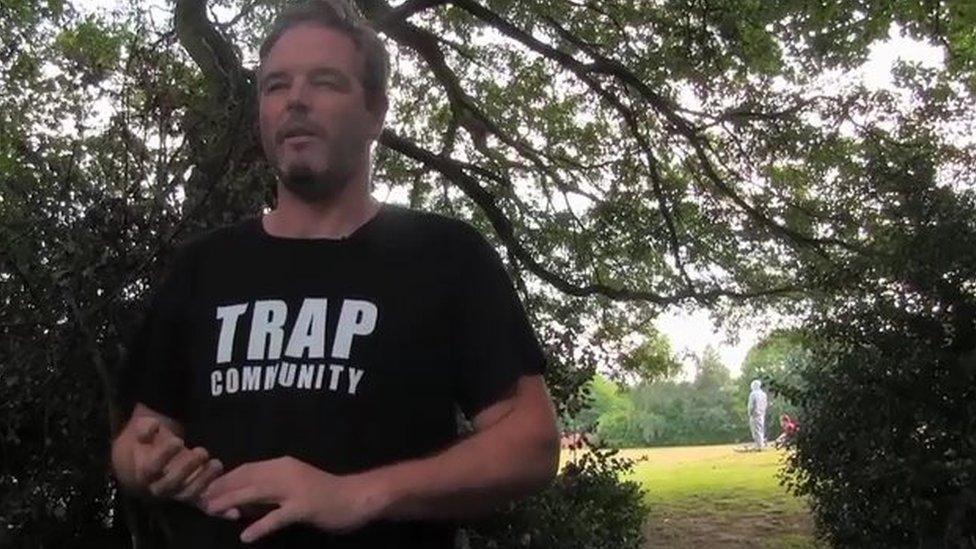Police concerns over rise of 'paedophile hunters'
- Published
The number of cases using evidence from 'paedophile hunting groups' tripled in two years.
Prosecutors used evidence provided by so-called paedophile hunters in more than 250 cases against suspected abusers in 2018.
Last week, members of one group were cleared of assault charges relating to operations against two men.
Predator Exposure, based in Leeds, claimed to have exposed more than 30 offenders since 2016.
However, senior police officers said they had serious concerns over the activities of these vigilante groups.
An assistant chief constable with responsibilities for tackling online child abuse said paedophile hunting groups were usually acting in their own interests rather than those of the children, diverted police resources away from other offenders and often committed offences themselves.
Who are the paedophile hunters?
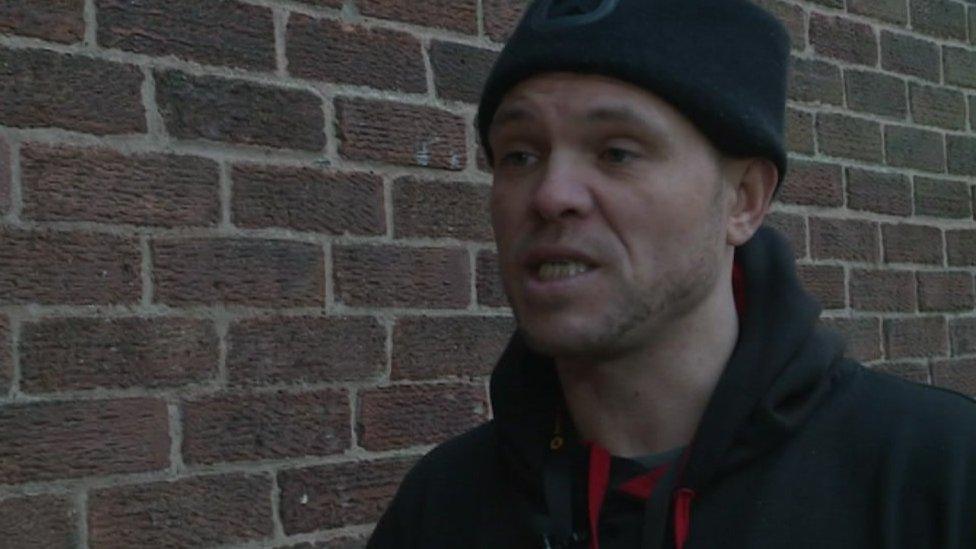
Phil Hoban insists his group operates within the law
Phil Hoban, from Beeston in West Yorkshire, established the group Predator Exposure in 2016.
Members set up fake online profiles, supposedly belonging to teenagers, and wait for adults to contact them.
"We don't start a conversation with them - they come to us," Mr Hoban said.
Once contact has been made they would confront the suspect, usually filming the operation, before handing their evidence to the police.
The 43-year-old claimed the group had exposed more than 30 suspected offenders.
"It's the worst crime ever attacking a child, taking their innocence. Children live with that for the rest of their lives," he said.
"This is all about saving kids, letting people know who lives next door to them, so I think it's a big achievement the amount of convictions we've had."
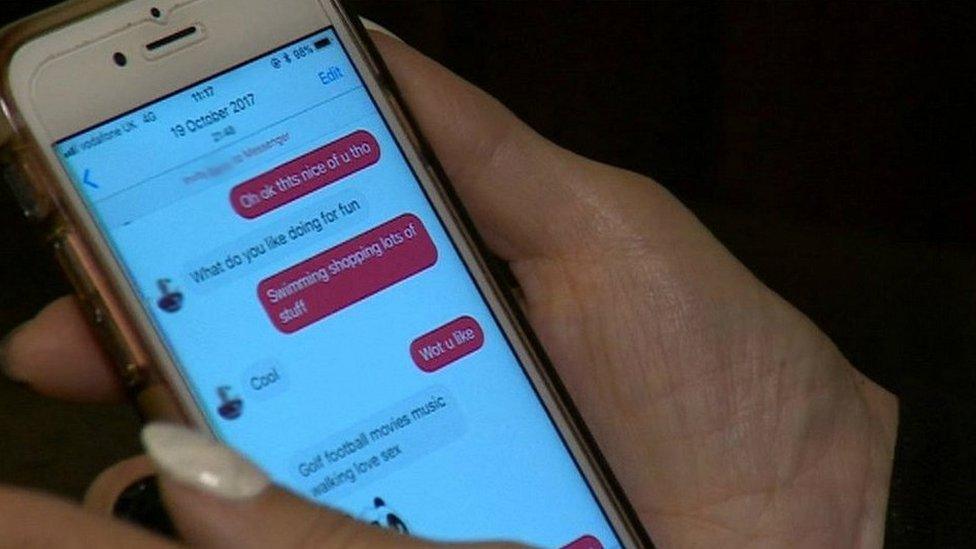
Paedophile hunters spend hours talking to individuals online usually posing as a child
He said paedophile hunters have to carry out their activities because the police were not doing enough.
"All I can say is 'go out and do your job so we don't have to do it'," he said.
"If we can catch them why can't they catch them?
"I have much better things to do with my time but this is part of my life.
"I will carry on catching paedophiles. I will carry on to the day I die."
How many cases use paedophile hunters' evidence?

The BBC requested information from 45 police forces in England, Wales, Northern Ireland and Jersey regarding the number of cases recorded for the offence of attempting to meet a child following sexual grooming in 2016, 2017 and 2018 and asked how many of those cases used evidence provided by so-called paedophile hunting groups.
Forty-two of the forces responded with some of the data requested, which showed:
403 people were prosecuted in 2018 for attempting to meet a child following sexual grooming
252 of those cases involved evidence gathered by paedophile hunting groups.
Of the forces contacted, 33 provided full data, which revealed:
The number of cases involving paedophile hunter evidence had more than tripled in the space of two years - rising from 57 in 2016 to 179 in 2018
The proportion of cases involving this evidence had also grown, from less than 25% of cases in 2016 to more than 60% of cases in 2018.
Police Scotland recorded crime differently but its data showed the use of paedophile hunter evidence in the number of recorded offences had grown from just one case in 2016 to 54 in 2018.
It said it was committed to tackling online child sexual abuse and was investing resources to identify and apprehend those who pose a threat to children.
A spokesperson added: "Online child sexual abuse continues to be an evolving and deeply concerning threat posed by predatory sex offenders, at home and worldwide, and perpetrated online at the touch of a button requires local, national and international capability."
Lesley's father took his own life after he was targeted by paedophile hunters
What do police say?
The National Police Chiefs' Council lead for online child abuse activist groups, Assistant Chief Constable Dan Vajzovic, said vigilante groups often exceeded the boundaries of the law.
He warned some were "perpetrating offences including extortion, blackmail and exhibiting violence against those that they are targeting".
Mr Vajzovic said more than 250 prosecutions coming through the work of these groups was a positive, but pointed out that every month UK law enforcement agencies arrested more than 500 suspected child abusers.
"Some of those prosecutions may have diverted police resources from more significant offenders," he said.
"Overall the activity of these groups is not positive."
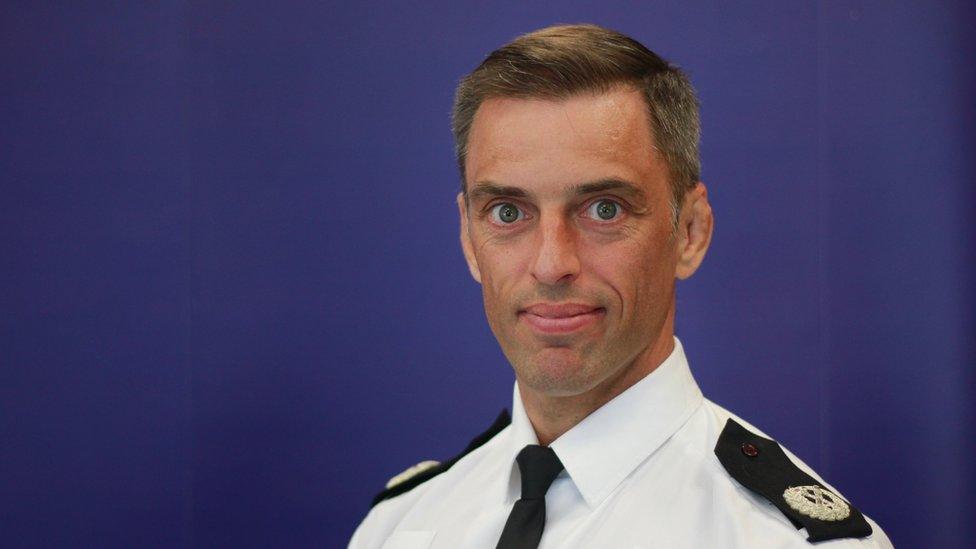
Assistant Chief Constable Dan Vajzovic believes vigilante groups prioritise publicity over safeguarding
He also questioned their aims.
"When these groups say that they are acting in the interests of children, largely they are acting in their own interests, their self-aggrandisement and their desire to exercise force against so-called perpetrators of child abuse," Mr Vajzovic said.
"They don't put in measures to safeguard children, they don't put in measures to identify other offenders who may be connected to the people they are targeting. They're more interested in putting a video online of them carrying out a sting."
Mr Vajzovic said those wanting to tackle child abuse should consider becoming a special constable or police volunteer and said he could not see any circumstances in which the police would actively work with these groups.
What is the view of child protection organisations?
The National Society for the Prevention of Cruelty to Children (NSPCC) said it also had some concerns about groups targeting suspected abusers.
"We have sympathy for those who worry about suspected abusers, want justice for children and feel frustrated that police can't do everything," a spokesperson for the charity said.
"However, despite their best intentions, their actions might put more children at risk of harm by driving offenders underground, endangering ongoing police work and the legal process, or result in innocent people being targeted."
The charity said protecting children must be the "ultimate priority".
"We need to know how forces and paedophile hunters can work together without jeopardising cases or potentially putting children in danger," the spokesperson said.
"If someone has concerns about child safety the best way they can help is to alert the police."
- Published30 October 2019
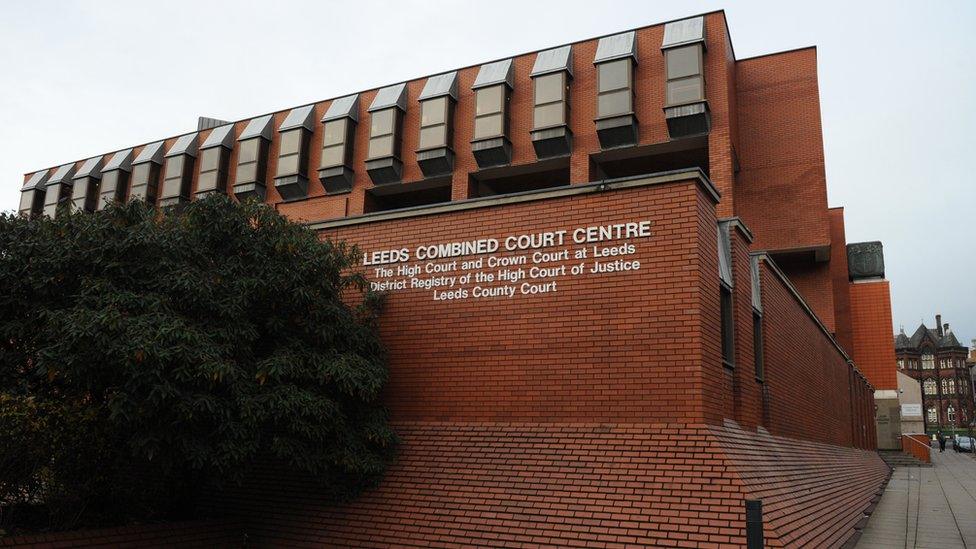
- Published1 October 2019
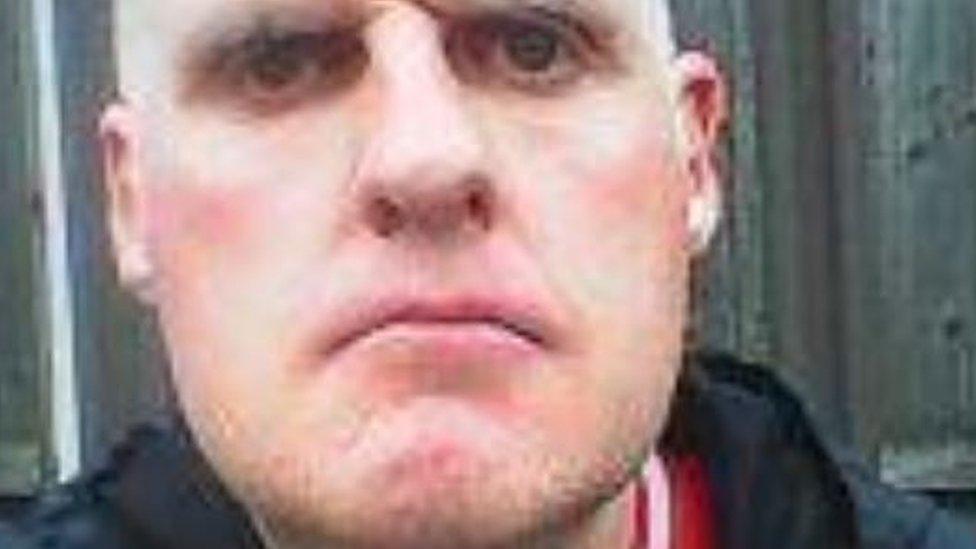
- Published10 April 2018

- Published18 September 2017
